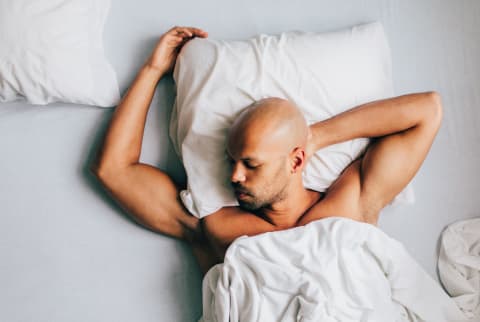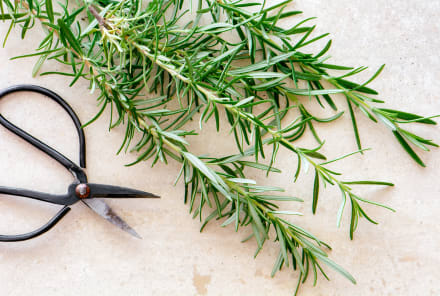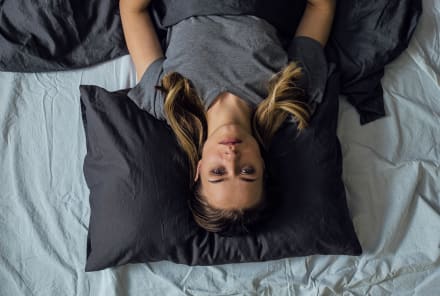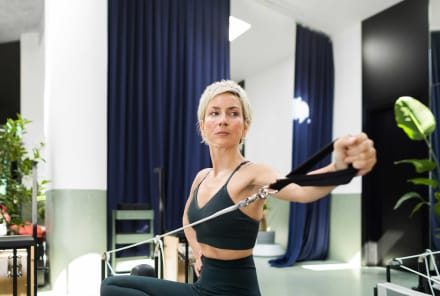Advertisement
How Reverse Intermittent Fasting May Affect Your Circadian Rhythm


As an author and as someone who likes to dive deep into research, I find there's an especially productive writing time that happens very late at night. It's quiet. It's a time when I can focus. And since nobody else in my home is awake then, it's a great period of alone time. As much as I enjoy those late hours, they come at a cost.
In the morning, I still have to take the kids to school at the usual hour. Staying up until 2 a.m. and waking five hours later, over and over, wears me down. It would wear anyone down. After a while, that kind of schedule makes you feel like garbage in the morning, and you wonder whether the exhilaration of the late-night creative burst is really worth it.
So of course, I decided to search for a biohack that would help me sleep normally when I'm done writing a book like this one.
How to hack your sleep.
In order to hack sleep, you have to hack billion-year-old evolutionary mechanisms, ones that predate the origin of animals—even the origin of sleep itself.
I'm talking about back when the most complex form of life on Earth was single-cell bacteria floating in the ocean. Peak nutrients were available at noon, when the sun was highest. The sun would come up, and those ancestral bacteria would float up from the cold depths of the ocean. They would reach the surface and get their first jolt of morning sunlight, which would be a reddish color—because, hey, that's what sunrise looks like when you're floating in a primordial ocean. And then they would start getting energy from the sun and begin feasting on whatever was in the water around them.
That whole legacy still lives on inside of you. The daily cycle of light and nutrition is encoded into your cells, and it's persisted for eons because it's kept us in sync with our planet. By selectively going without—without food, artificial light, or electronic distractions—you can restore harmony with your ancient internal rhythm.
You're going to combine the timing of food and sleep to trick your brain into moving your sleep window. Think about the stimuli that affect your body clock. The first is light, including its color, intensity, and angle. The second is calories, or rather calories consumed.
If you believe you'll starve without three meals a day, your sleep window will remain frustratingly out of your control. There aren't yet any ironclad studies to back up my theory, but I estimate that light controls about 70% of the strength of your circadian rhythm, food about 20%, and room temperature is probably the other 10%.
These are the variables we're going to work on hacking to reset our circadian rhythm. The formula I've come up with boils down to this:
- Wake at the new time, with or without an alarm.
- Turn on bright indoor lights (halogen are best), or go outside without sunglasses.
- Drink coffee with butter and C8 MCT oil, and have at least 30 to 50 grams of protein within 30 minutes of waking.
- Eat lunch normally, including lots of fat and grass-fed protein.
- Fast from 2 p.m. onward.
- Dim the lights two hours before bed.
- Repeat for a week, and do not eat dinner at all. This is a "reverse intermittent fasting" schedule, where you eat all your calories in a morning eating window.
This formula worked astoundingly well for me. For the past 14 years, I reliably went to sleep at around 2 to 4 a.m. Using the above techniques, I now get tired and go to sleep at 11 p.m. and am able to wake up without an alarm clock seven hours later.
On the other side of the coin, if you're the rare person who goes to bed at 9 p.m. and wakes at 4 a.m., you may also want to reset your clock. Using the same basic techniques may help you shift your bedtime later:
- Eat dinner an hour after dark, including lots of protein and a few carbs.
- Keep bright lights on for an hour (or maybe two) after the sun goes down.
- Avoid caffeine at night.
- Sleep in a very dark room.
- Wake up as late as you can.
- After you wake up, use low lighting for one to two hours.
- Do not drink coffee until two hours after you wake up.
- Do not eat food of any type in the morning (butter and C8 MCT oil in your coffee are OK if you're hungry.)
- Eat a late lunch at 2 p.m., including lots of fat and grass-fed protein.
- Repeat for a week.
It is truly remarkable how combining fasting with light can recalibrate your body's internal clock. To go to bed at an earlier time, stick with reverse intermittent fasting, bright light in the morning, and dim lights at night. To go to bed later, opt for standard intermittent fasting, dimmer lights in the morning, and more control over your caffeine intake.
Watch Next
Enjoy some of our favorite clips from classes
Enjoy some of our favorite clips from classes
What Is Meditation?
Mindfulness/Spirituality | Light Watkins
Box Breathing
Mindfulness/Spirituality | Gwen Dittmar
What Breathwork Can Address
Mindfulness/Spirituality | Gwen Dittmar
The 8 Limbs of Yoga - What is Asana?
Yoga | Caley Alyssa
Two Standing Postures to Open Up Tight Hips
Yoga | Caley Alyssa
How Plants Can Optimize Athletic Performance
Nutrition | Rich Roll
What to Eat Before a Workout
Nutrition | Rich Roll
How Ayurveda Helps Us Navigate Modern Life
Nutrition | Sahara Rose
Messages About Love & Relationships
Love & Relationships | Esther Perel
Love Languages
Love & Relationships | Esther Perel
What Is Meditation?
Box Breathing
What Breathwork Can Address
The 8 Limbs of Yoga - What is Asana?
Two Standing Postures to Open Up Tight Hips
How Plants Can Optimize Athletic Performance
What to Eat Before a Workout
How Ayurveda Helps Us Navigate Modern Life
Messages About Love & Relationships
Love Languages
Advertisement

There Are 12 Hallmarks Of Aging — This Vitamin May Improve All Of Them
Molly Knudsen, M.S., RDN

This Popular Muscle-Building Supplement Can Also Strengthen Your Memory*
Molly Knudsen, M.S., RDN

There Are 12 Hallmarks Of Aging — This Vitamin May Improve All Of Them
Molly Knudsen, M.S., RDN

This Popular Muscle-Building Supplement Can Also Strengthen Your Memory*
Molly Knudsen, M.S., RDN













